Philosophy: Essential Concepts for Reading Comprehension
Introduction
Philosophical topics in reading passages explore profound questions about existence, morality, and the human condition. These passages often delve into abstract ideas, challenging readers to engage with deep, analytical arguments. Understanding these key philosophical concepts not only aids in grasping the author’s intent but also sharpens critical thinking—essential for tackling complex passages effectively.
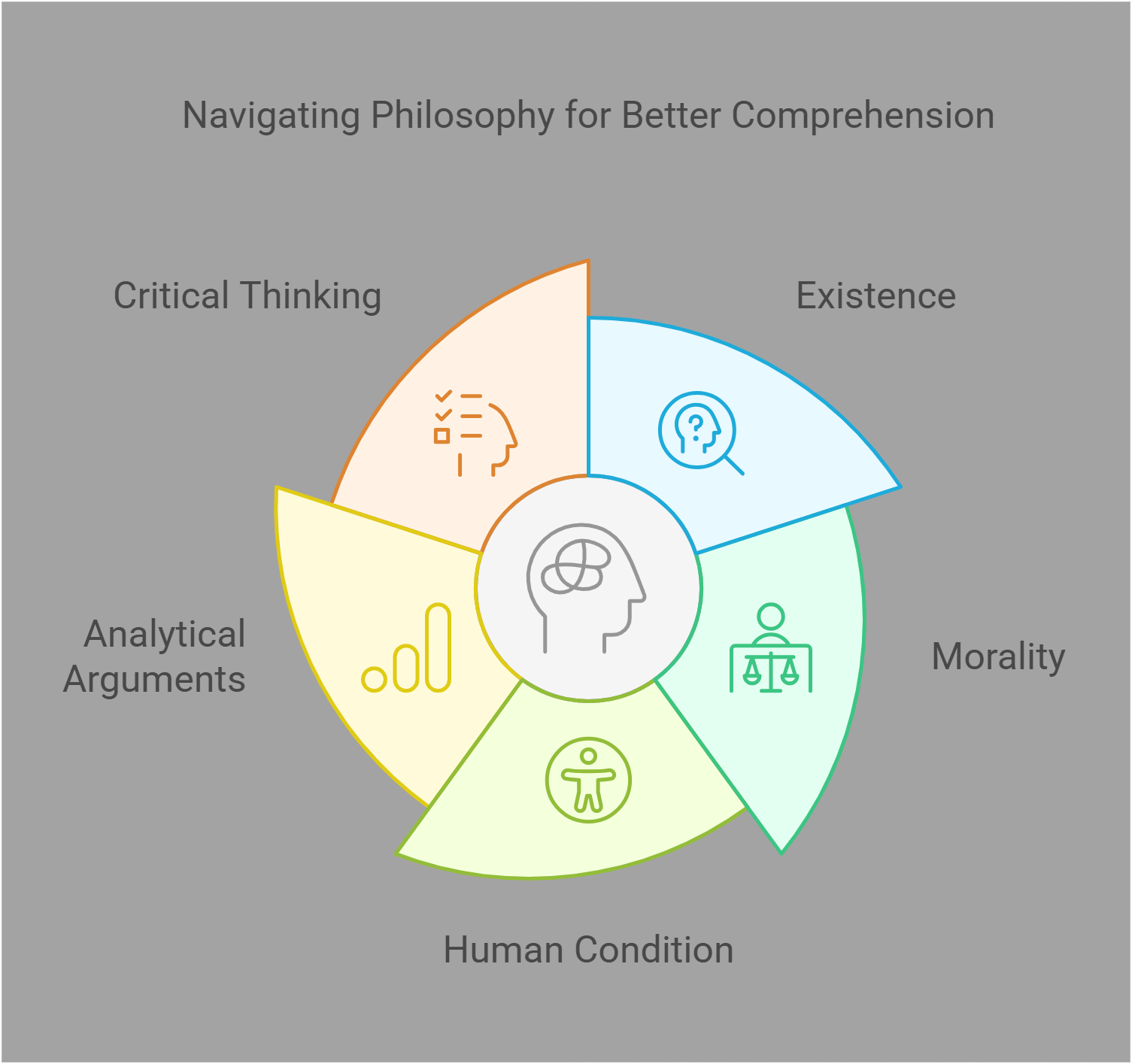
Overview
In this guide, we’ll explore these key philosophy-related concepts:
- Existentialism
- Utilitarianism
- Post-modernism
- Ethics of Technology
- Determinism vs. Free Will
- Epistemology
- Metaphysics
- Deontology
- Phenomenology
- Stoicism
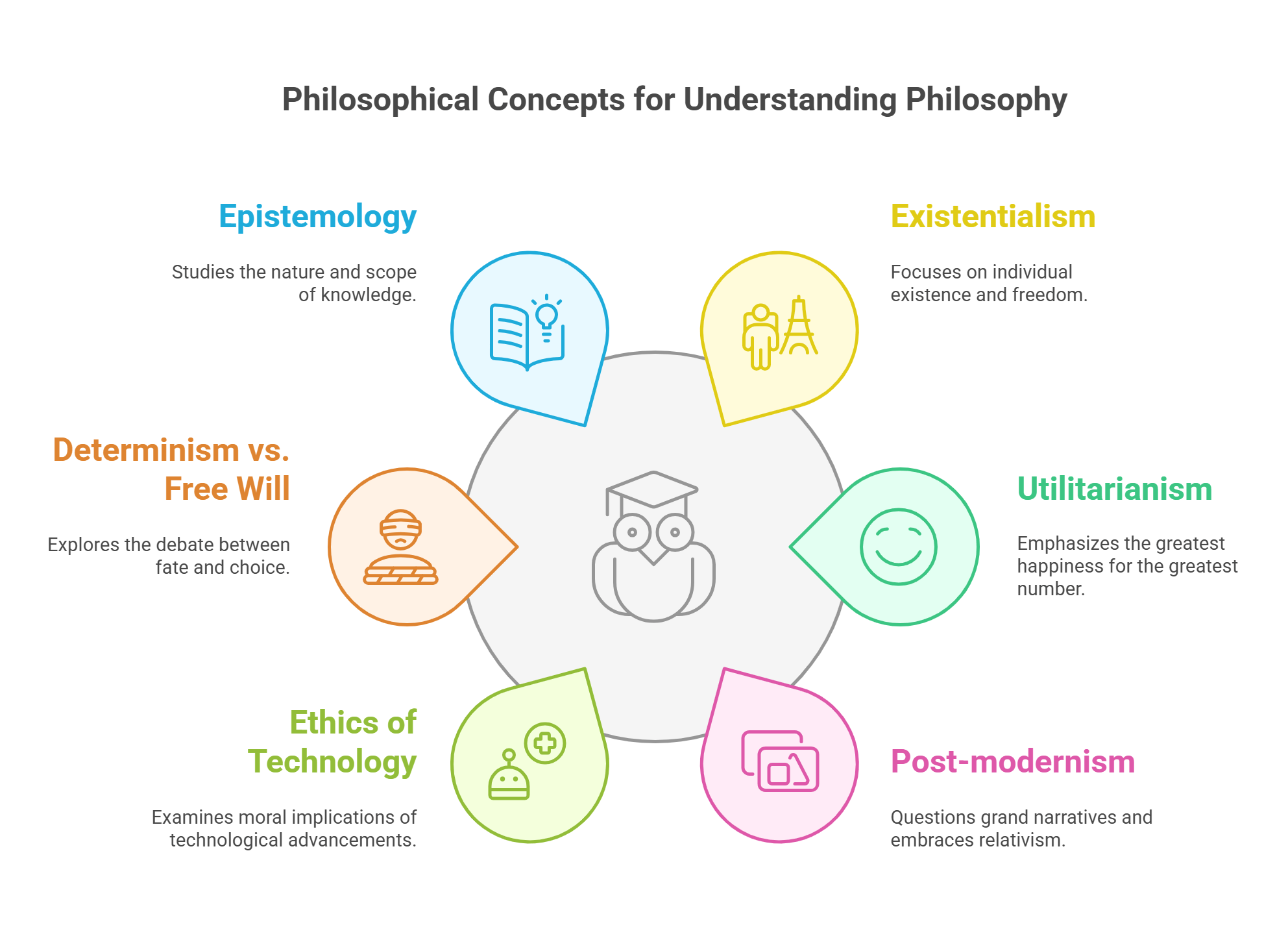
Detailed Explanations
1. Existentialism
Existentialism emphasizes that life has no preordained meaning and that individuals must create their own purpose through choices and actions. It emerged in response to modern concerns about alienation and meaninglessness, offering a framework for embracing freedom and responsibility. Thinkers like Jean-Paul Sartre and Friedrich Nietzsche argue that human beings are “condemned to be free,” meaning that while we have the freedom to choose, we also bear the full weight of those choices.
- Focuses on individual freedom and choice
- Rejects inherent meaning in life
- Encourages authenticity and responsibility
- Explores themes of alienation and despair
- Influences modern literature and art
How Would You Explain This to a 10-Year-Old?
Imagine you’re in a giant play where no one gives you a script. You get to decide your role and make your own story. Some people might feel scared without instructions, but existentialism says it’s exciting—you can be anything you want, but you also have to own your choices.
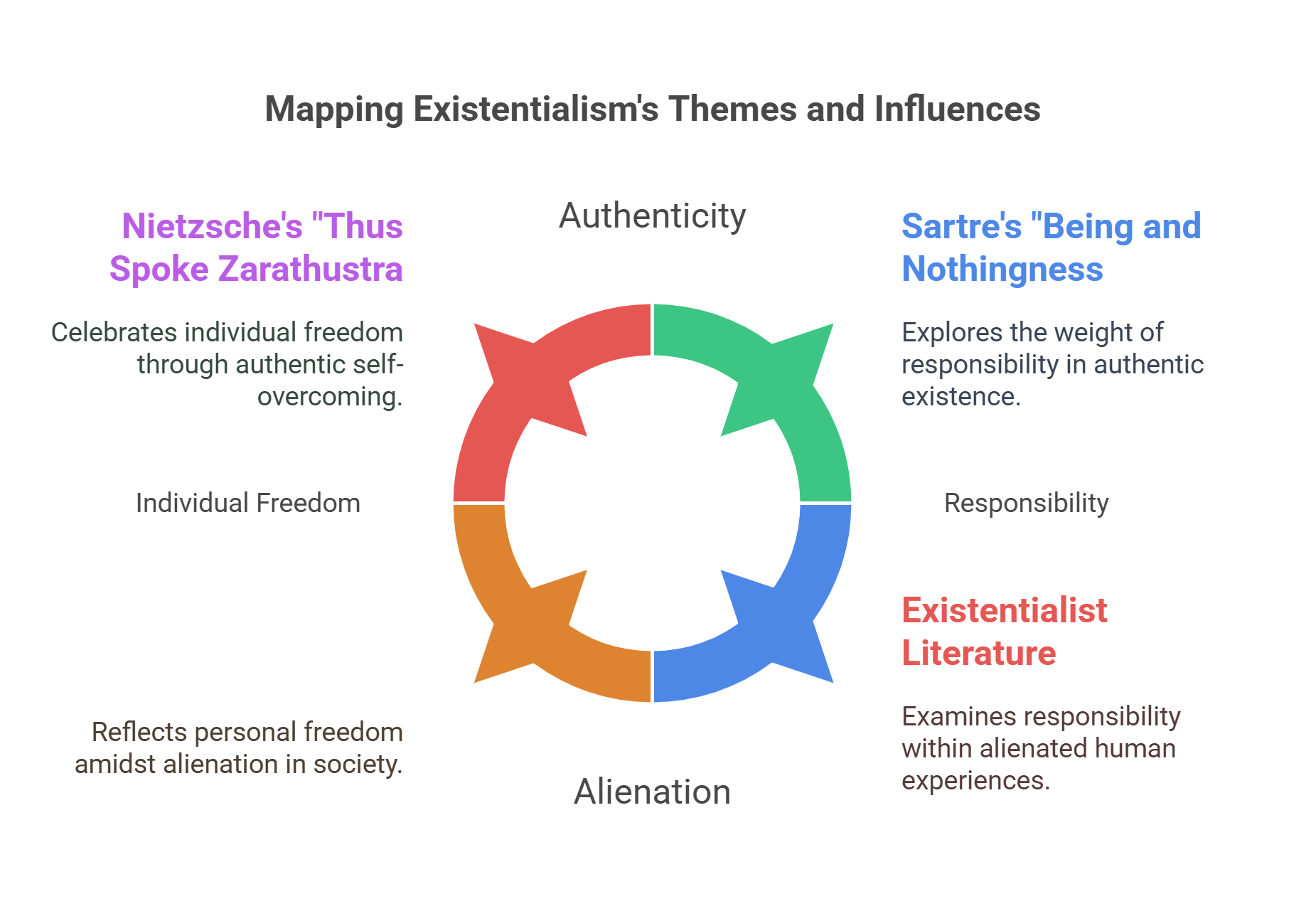
2. Utilitarianism
Utilitarianism evaluates the morality of actions based on their consequences, aiming to achieve the greatest happiness for the greatest number. Developed by philosophers Jeremy Bentham and John Stuart Mill, it focuses on outcomes rather than intentions. Critics argue that it may sacrifice individual rights for collective benefit, but supporters see it as a practical guide for ethical decision-making.
- “Greatest good for the greatest number”
- Focuses on consequences of actions
- Challenges traditional duty-based ethics
- Used in policymaking and moral debates
- Critiques: neglects minority rights and individual justice
How Would You Explain This to a 10-Year-Old?
Imagine you have a jar of cookies and ten friends. If you give everyone a cookie, everyone is happy. But if you eat all the cookies, only you’re happy. Utilitarianism says the best choice is the one that makes the most people happy.
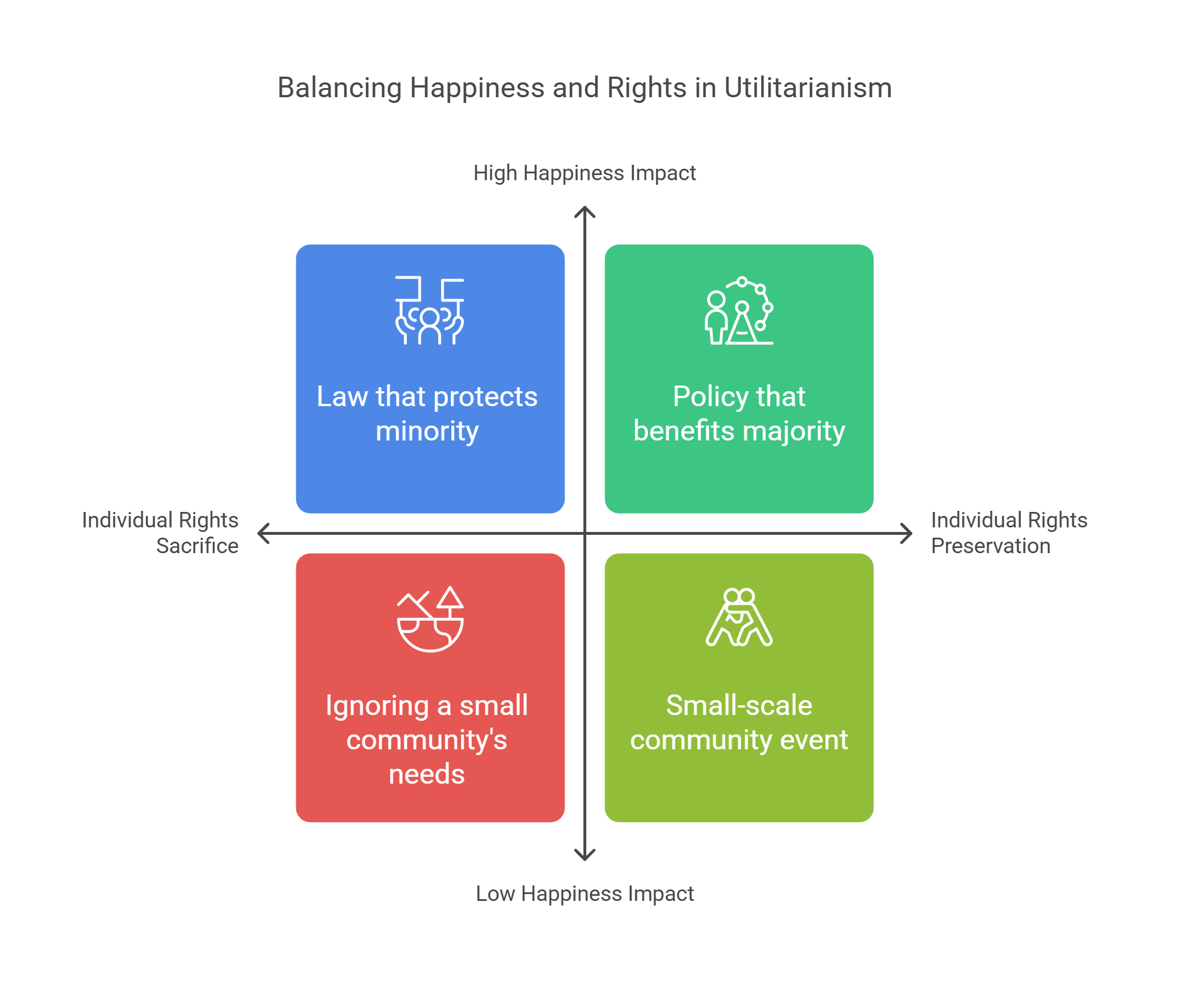
3. Post-modernism
Post-modernism challenges the idea of absolute truths, arguing that what we consider “truth” is shaped by culture, history, and individual perspectives. It critiques grand narratives that claim to explain everything and focuses on diversity, ambiguity, and subjective experience. Prominent thinkers like Michel Foucault explore how power and knowledge are intertwined.
- Rejects absolute truths and grand narratives
- Explores power dynamics and cultural relativism
- Influences literature, art, and sociology
- Critiques modernist assumptions of progress
- Highlights subjectivity in human experience
How Would You Explain This to a 10-Year-Old?
Imagine you and your friends see the same painting, but everyone has a different favorite part. Post-modernism says that’s okay! There’s no one “right” way to see it—everyone’s view is special because it’s theirs.
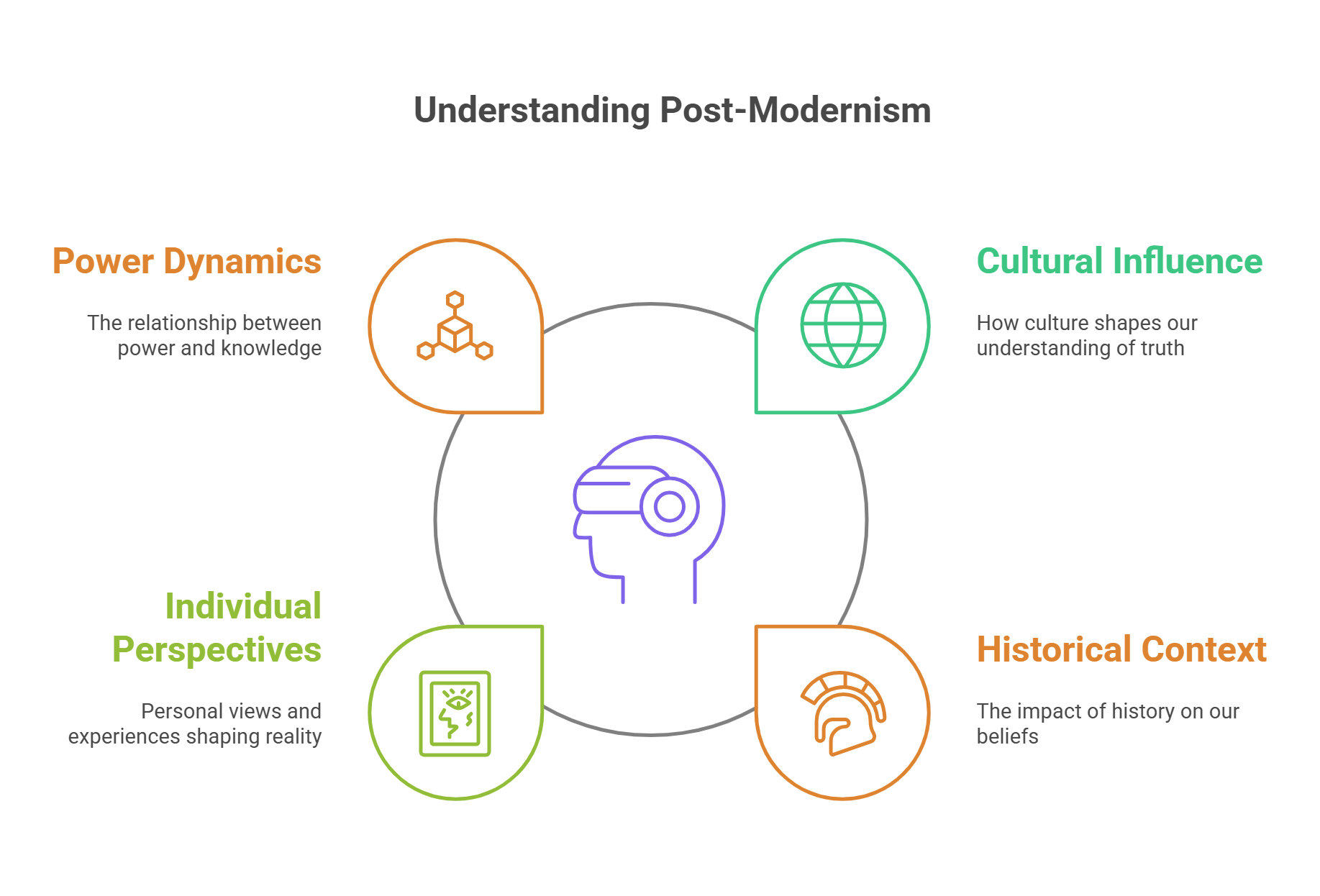
4. Ethics of Technology
This branch of philosophy studies how technology impacts society, asking questions about its benefits, risks, and responsibilities. For example, should AI systems be allowed to make decisions for humans? Topics like privacy, automation, and digital rights dominate discussions about ethical boundaries in technological innovation.
- Explores privacy and data ethics
- Discusses AI and automation impacts
- Balances innovation with ethical concerns
- Examines human-technology interaction
- Debates ethical boundaries in tech development
How Would You Explain This to a 10-Year-Old?
Imagine you have a robot that can do your homework. Sounds great, right? But what if it learns so much it starts deciding things for you? Ethics of technology is about thinking carefully before using new inventions to make sure they help everyone and don’t cause harm.
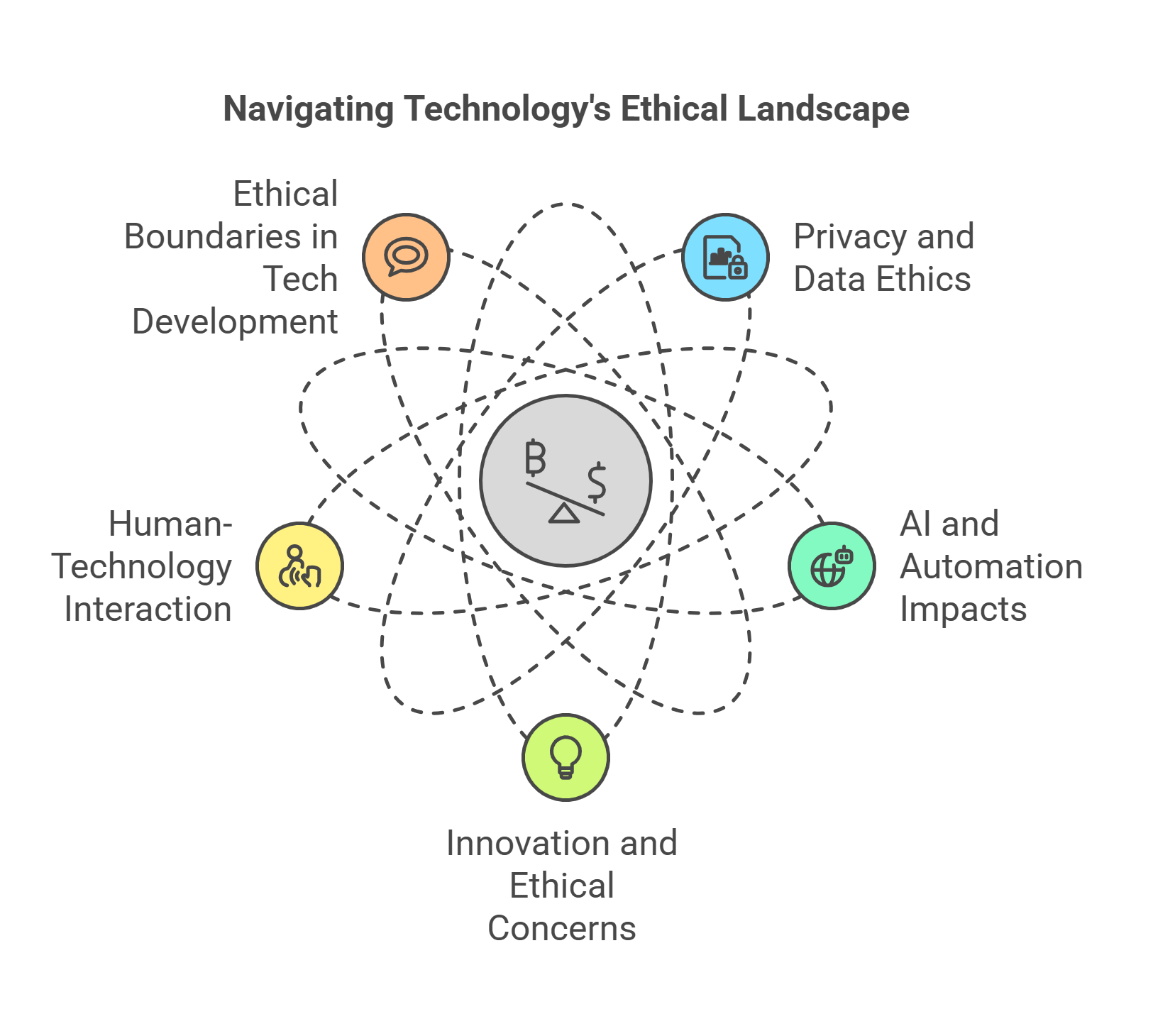
5. Determinism vs. Free Will
Determinism argues that every event, including human actions, is caused by previous events and conditions, meaning free will may not exist. Free will, on the other hand, insists that humans can make independent choices. Philosophers debate whether we are puppets of circumstances or masters of our own fate.
- Determinism: actions shaped by causality
- Free will: belief in autonomous choice
- Examines moral responsibility under determinism
- Central to legal, psychological, and ethical theories
- Explores reconciliation through compatibilism
How Would You Explain This to a 10-Year-Old?
Think about a line of dominoes. If one falls, it knocks over the next. Determinism says life is like that—we’re all dominoes pushed by other dominoes. Free will says you’re a domino that can jump out of the way!
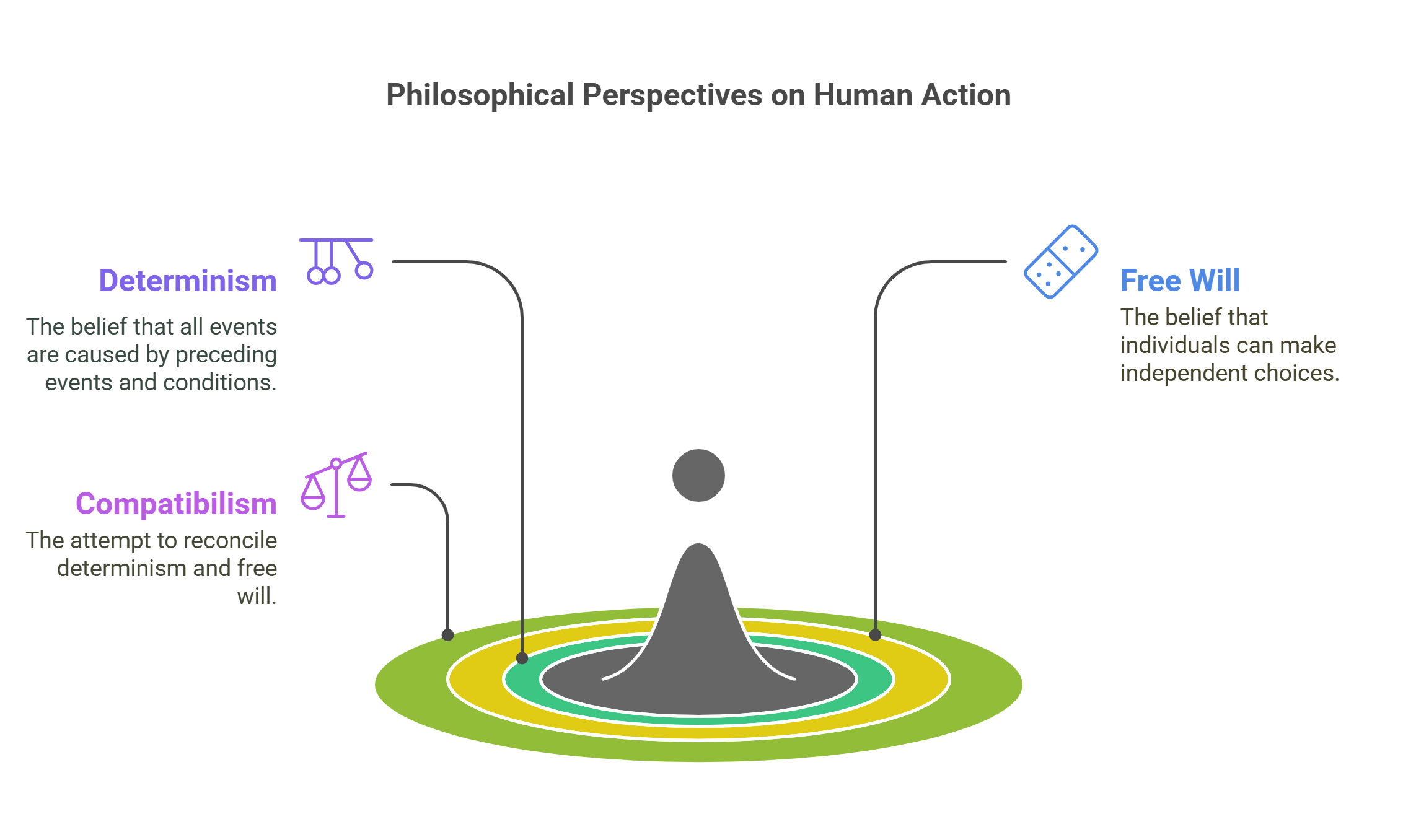
6. Epistemology
Epistemology is the study of knowledge—how we know what we know. It asks questions like: What is truth? Can we trust our senses? Is knowledge based on reason, experience, or both? This field lays the foundation for understanding scientific and philosophical inquiry.
- Questions the nature and scope of knowledge
- Differentiates between belief, truth, and justification
- Influences scientific and philosophical inquiry
- Explores skepticism and certainty
- Basis for rational and empirical methods
How Would You Explain This to a 10-Year-Old?
Imagine you’re solving a mystery. How do you know who took the last cookie? You look for clues, ask questions, and think really hard. Epistemology is like being a detective for figuring out what’s true.
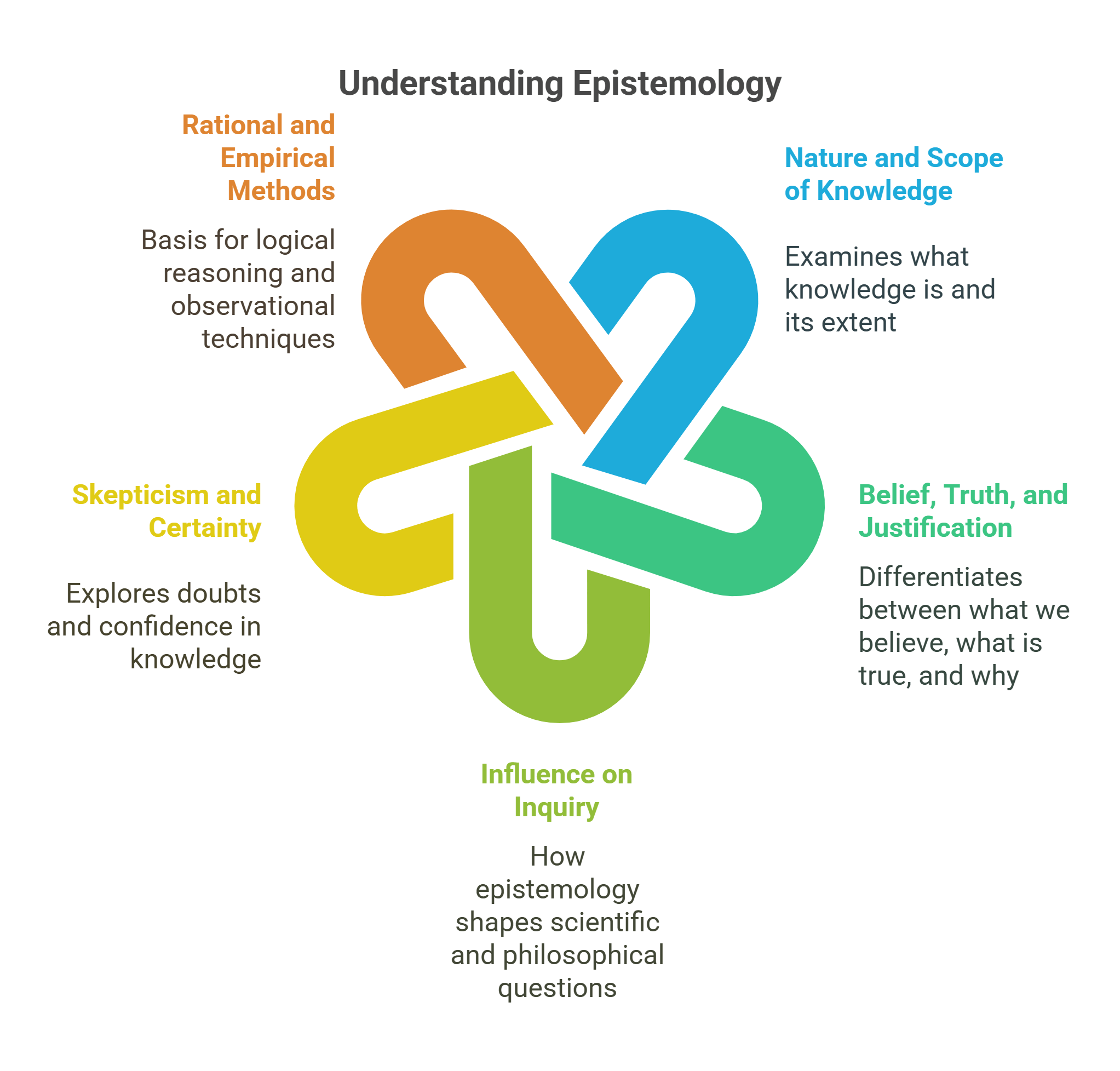
7. Metaphysics
Metaphysics explores the nature of reality, existence, and the universe. It asks big questions like, “What is the meaning of being?” or “Does the universe exist independently of our perception?” Topics include the nature of time, space, causality, and the mind-body connection. Philosophers like Aristotle and Heidegger contributed significantly to this field, shaping how we understand existence.
- Explores being, existence, and essence
- Addresses the nature of time and space
- Engages with mind-body dualism debates
- Examines causality and interconnectedness
- Fundamental to understanding philosophical thought
How Would You Explain This to a 10-Year-Old?
It’s like asking big questions about life, like, “What’s outside the sky?” or “What makes me, me?” Metaphysics doesn’t always have answers, but it helps you wonder about amazing things, like if time is real or just something we imagine.
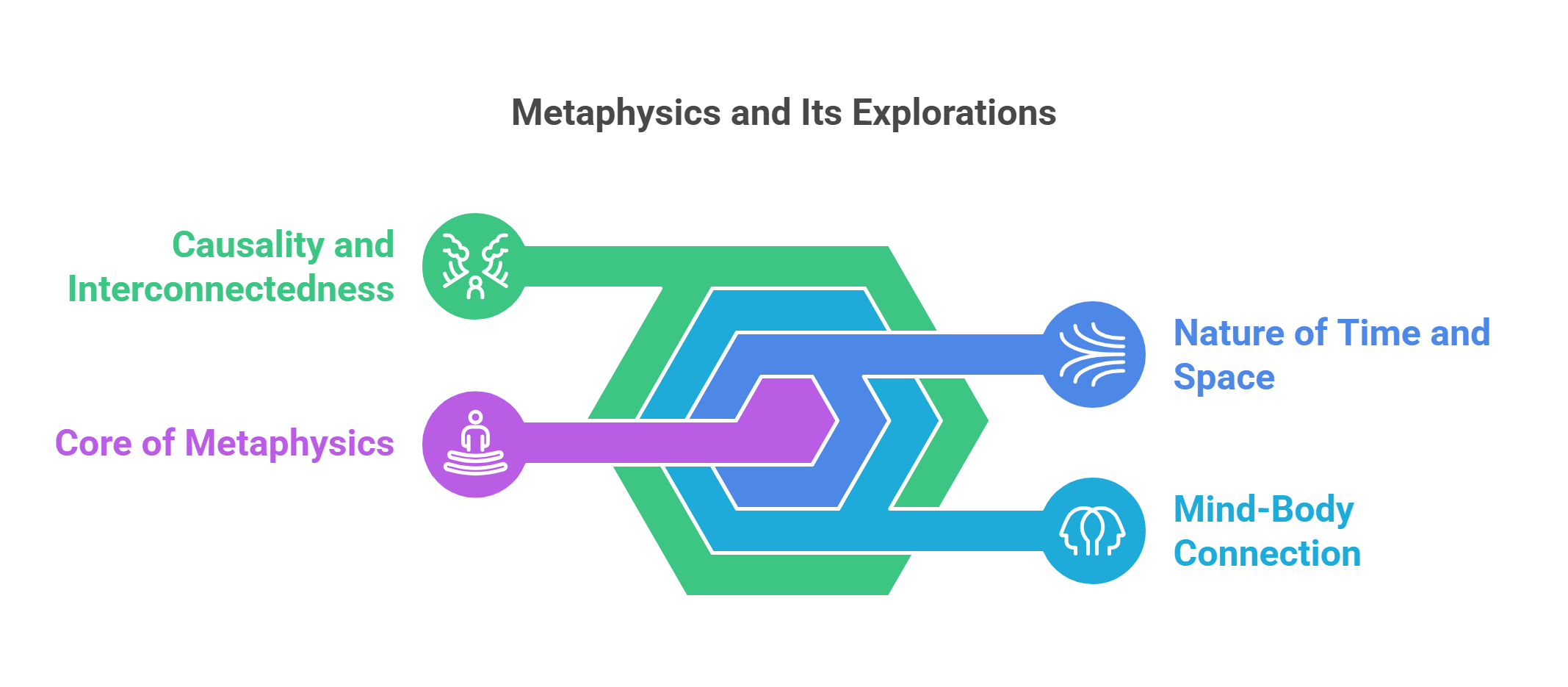
8. Deontology
Deontology focuses on rules and duties, arguing that actions are right or wrong based on principles, not outcomes. Immanuel Kant, a leading deontologist, believed that morality is about following universal principles, like honesty or fairness, regardless of the consequences. While practical, critics say it can be rigid and inflexible in complex situations.
- Emphasizes universal moral duties
- Associated with philosopher Immanuel Kant
- Contrasts with utilitarianism’s focus on outcomes
- Promotes integrity and respect for individual rights
- Criticized for rigidity and lack of flexibility
How Would You Explain This to a 10-Year-Old?
Imagine you promise to help your friend, but you get invited to a super-fun party. Deontology says you should help your friend because keeping promises is the right thing to do, even if the party is tempting.
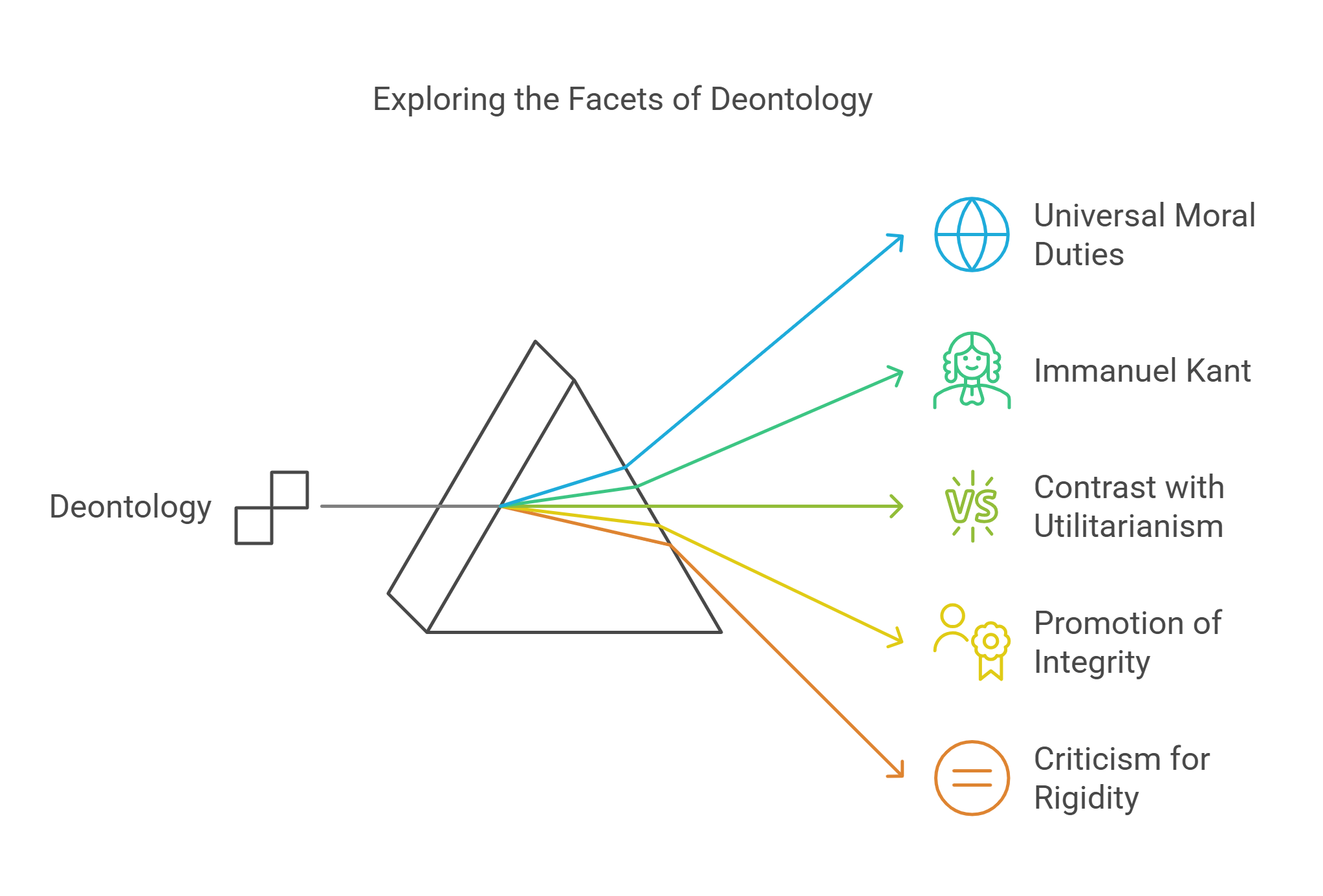
9. Phenomenology
Phenomenology studies human experiences and how we interpret the world. It’s about understanding how things appear to us and how we give them meaning. Edmund Husserl, the founder of phenomenology, called it “going back to the things themselves,” focusing on subjective experiences rather than objective facts.
- Focuses on subjective experience
- Examines the relationship between perception and reality
- Influences existentialism and psychology
- Explores themes of embodiment and intentionality
- Applicable in art, literature, and social sciences
How Would You Explain This to a 10-Year-Old?
Imagine tasting your favorite candy. Phenomenology is about thinking, “What does it feel like to taste this?” It’s all about paying attention to how things seem to you, like how sunlight feels warm or a song makes you happy.
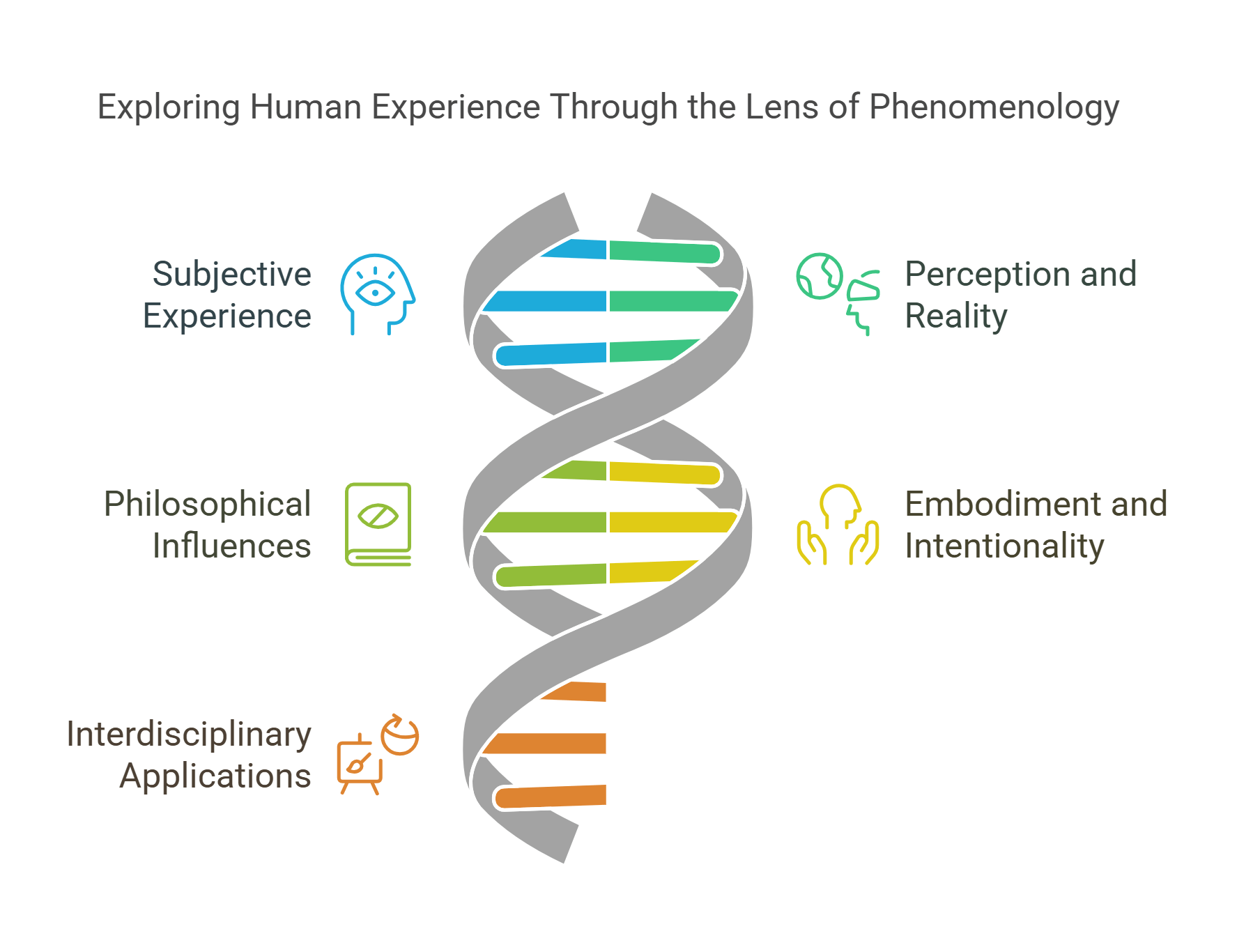
10. Stoicism
Stoicism teaches resilience, emotional control, and rationality. Originating in Ancient Greece, Stoics like Marcus Aurelius and Seneca emphasized focusing on what you can control and accepting what you cannot. Its principles—virtue, wisdom, courage, and temperance—remain highly relevant for mental well-being and leadership today.
- Promotes emotional regulation and rational thought
- Values virtue and personal integrity
- Encourages acceptance of fate (amor fati)
- Offers practical strategies for mental clarity
- Inspires modern self-help and leadership practices
How Would You Explain This to a 10-Year-Old?
Imagine it’s raining on your picnic. Stoicism says, “You can’t stop the rain, but you can have fun jumping in puddles.” It’s all about staying calm and making the best of things, even when things don’t go your way.
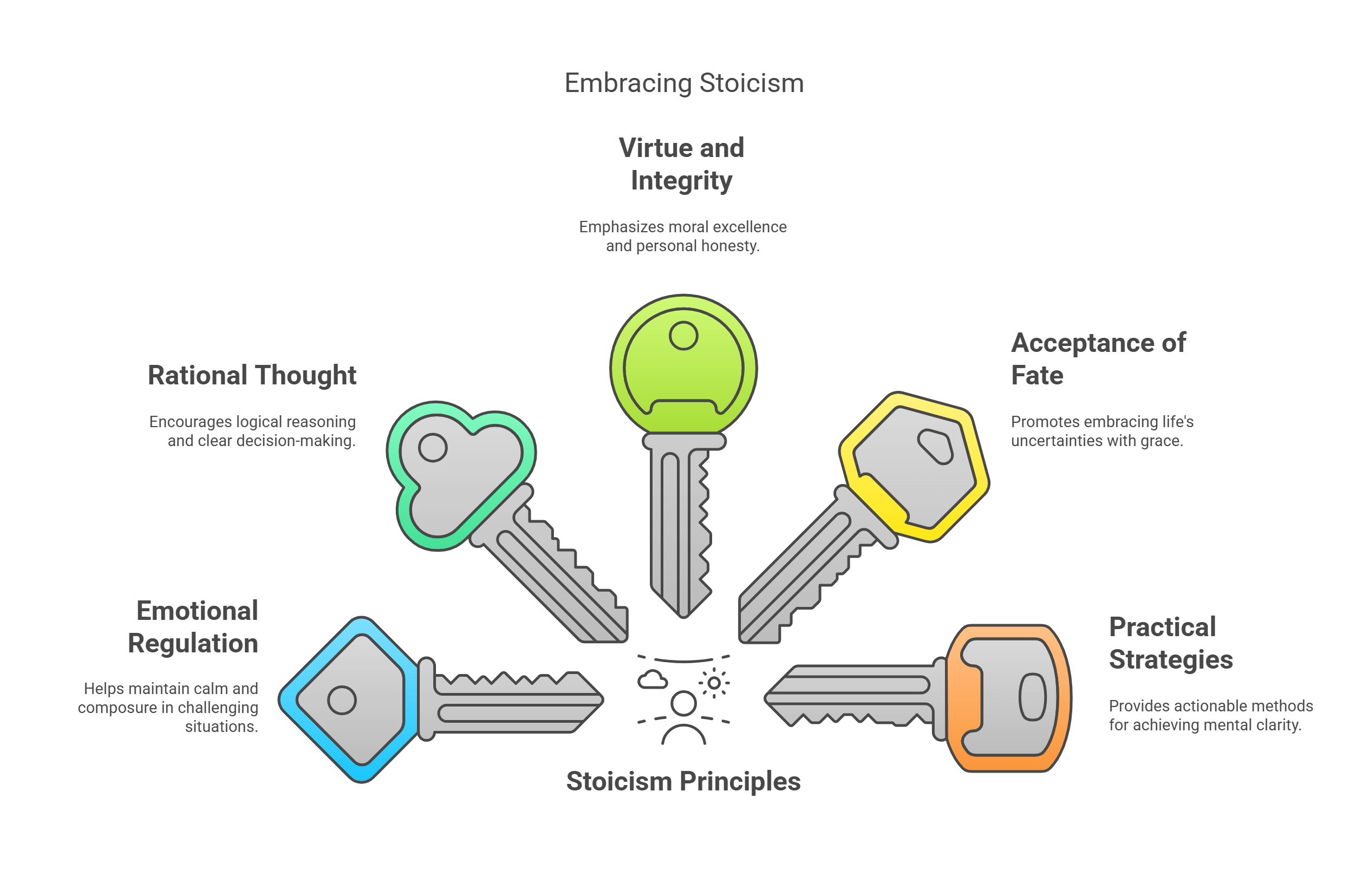
Conclusion
Philosophical concepts provide invaluable tools for analyzing complex texts and arguments in reading comprehension passages. By familiarizing yourself with these ideas, you can better identify an author’s perspective, critique their logic, and engage with nuanced discussions. These principles not only improve your understanding of RC passages but also refine your critical thinking skills for broader applications.













